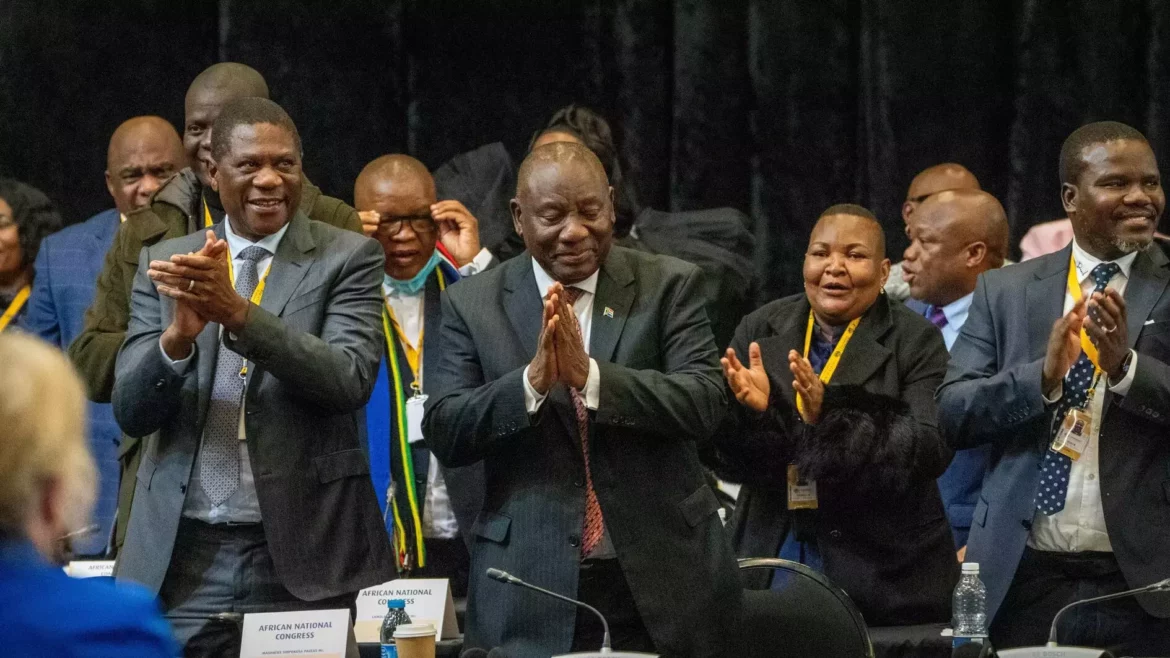President Cyril Ramaphosa has won re-election as the leader of South Africa after the African National Congress (ANC) reached a successful coalition agreement. The announcement of the deal on Wednesday evening ensures Ramaphosa’s leadership and guarantees a stable government in the future.
In the recent general elections, the ANC did not secure a majority and thus formed a coalition with various smaller parties to achieve a majority in the National Assembly. After weeks of negotiations and political strategies, an agreement was reached to maintain Ramaphosa’s leadership in a difficult political environment.
“This coalition is a victory for the people of South Africa,” President Ramaphosa said in his acceptance speech. “It represents our collective commitment to building a prosperous and inclusive nation. Together, we will address the pressing issues facing our country and work tirelessly to improve the lives of all South Africans.”
The coalition partners include the United Democratic Movement (UDM), the African Independent Congress (AIC), and the Pan Africanist Congress of Azania (PAC). The coalition agreement outlines shared governance priorities, including economic reform, job creation, and combating corruption.
“Through this coalition, we aim to bring stability and effective governance to South Africa,” said Bantu Holomisa, leader of the UDM. “Our shared vision and collaborative efforts will drive the country towards progress and development.”
The re-election of Ramaphosa and the formation of the coalition government have been welcomed by various sectors of society, including business leaders and civil society organizations. Many see this development as a crucial step towards political stability and economic recovery.
“President Ramaphosa’s re-election and the coalition agreement are positive signals for the business community,” said Sipho Pityana, a prominent South African businessman. “We look forward to policies that will foster economic growth and create a conducive environment for investment.”
Despite the positive reception, the coalition government faces significant challenges, including addressing high unemployment rates, inequality, and public service delivery issues. Ramaphosa’s administration will also need to navigate internal party dynamics and ensure cohesion among coalition partners.
Political analysts suggest that the success of this coalition government will depend on the ability to maintain unity and effectively implement the agreed-upon policies. “The coalition presents both opportunities and challenges,” said Susan Booysen, a political analyst at the University of the Witwatersrand. “Its success will largely hinge on the collaborative spirit and practical governance strategies employed by the leaders.”
As President Ramaphosa begins his new term, the focus will be on delivering on promises made during the election campaign and addressing the urgent needs of the South African population. The coalition government’s performance in the coming months will be closely monitored by both national and international observers.
“We are committed to transparency, accountability, and service delivery,” Ramaphosa assured the public. “This is a government for all South Africans, and we will work tirelessly to fulfill our mandate and build a brighter future for our nation.”
With the coalition deal in place and Ramaphosa at the helm, South Africa embarks on a new chapter, poised for potential transformation and growth. The coming years will be critical in determining the trajectory of the nation’s political and economic landscape.
